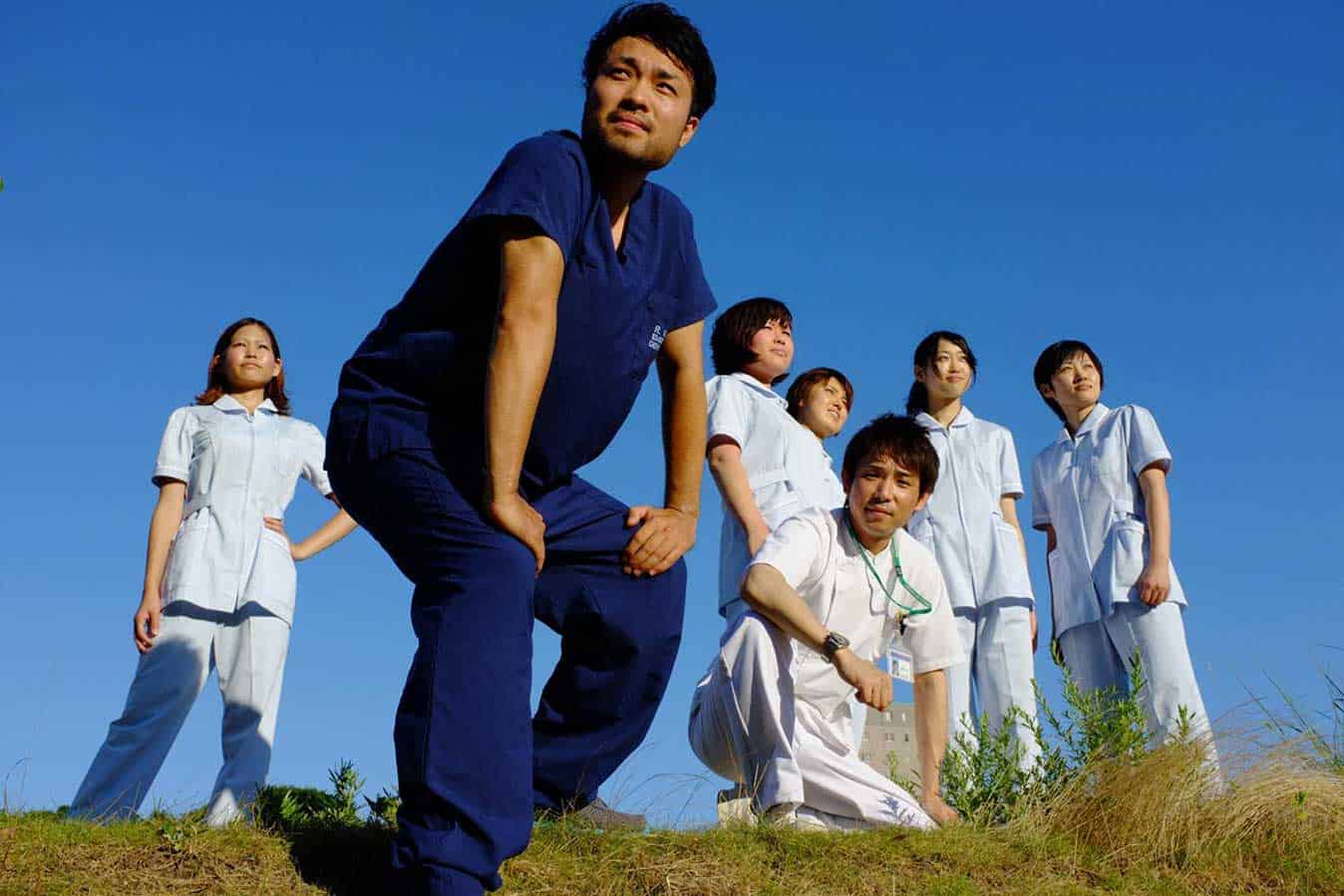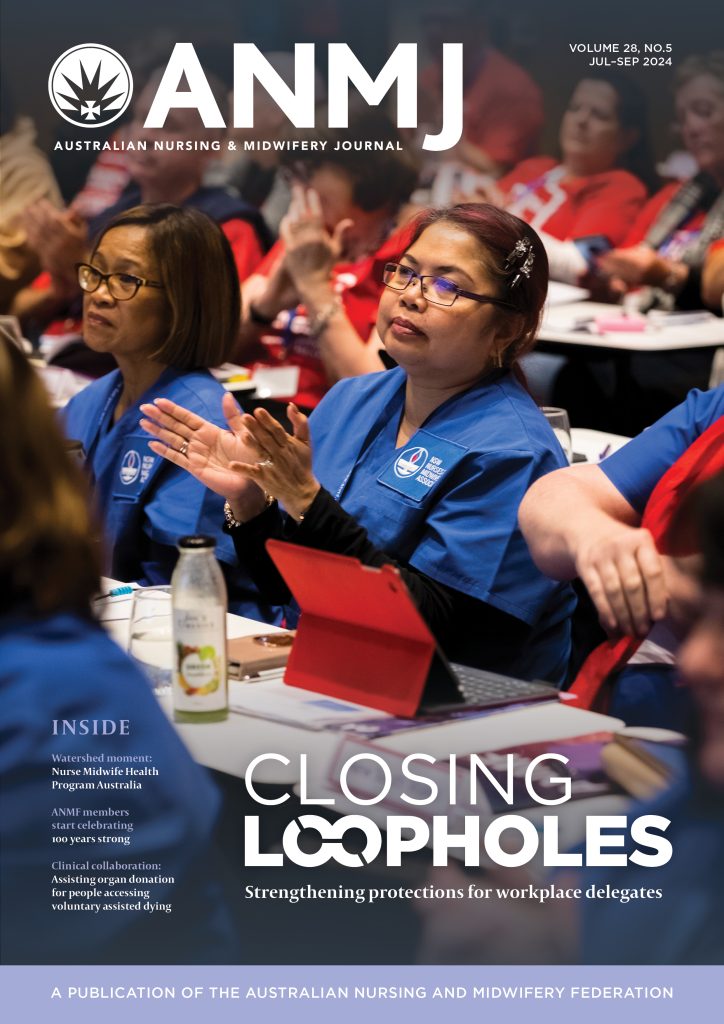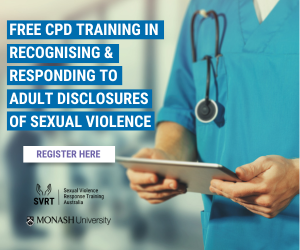Becoming a nurse was never on Kazuma Honda’s radar. He didn’t even know what the role involved. Looking back, however, it feels like his pathway into the profession was almost meant to be.
A native of Nagoya, Japan, Kazuma was living and studying in China in 1998 when he met his future wife, an Australian.
A year later, he made the move down under, commencing a new chapter of his life.
Kazuma’s brother, who sadly passed away at the age of 33 in 2015, was born with an intellectual disability and needed daily support and care. Growing up, Kazuma distanced himself from his brother and struggled to come to terms with his disability.
In high school, he began volunteering, believing that by helping others, he could set things right. It was because of his brother that he initially wanted to become a special education teacher in Japan.
When he arrived in Australia in 1999, Kazuma could not speak a word of English. While he quickly settled into his new country’s way of life, there were still many things he missed about his homeland.
“Everything in Australia seems so far away and inconvenient; whereas in Japan everything is basically at your fingertips and this for me, coming from a big city, was at times, and still is, a big shock,” he recalls of his first impressions.
Upon arriving in Australia, Kazuma held down a number of jobs, including washing dishes.
His passion for volunteering motivated him to join Riding for the Disabled, a not-for-profit that helps people with a disability experience freedom and independence through equestrian activities.
Observing his enthusiasm and the joy he got from caring for people and wanting to make a difference, his boss at the time said ‘Why don’t you become a nurse?’
“At the time I didn’t know a lot about what nursing involved, but I knew it was a profession that enabled you to help people.”
The conversation planted the seed and, in 2006, Kazuma applied for an Enrolled Nurse (EN) traineeship run through North Sydney TAFE and the Royal North Shore Hospital.
After 12 months of study and clinical placements, he began his career in a large public hospital in North Sydney as a vascular access nurse in the accident and emergency department.
After working in the system for several years, Kazuma decided he wanted to increase his scope of practice, so he undertook a Bachelor of Nursing at the University of Newcastle’s Central Coast Campus to become a registered nurse (RN).
“Going from an EN to an RN certainly was a difficult time both personally and academically,” he says.
“It was, for me, my first ever degree and to begin with the study load came as a shock. I was studying full-time and working as an EN part-time, which meant I had very little time for anything else.”
Thanks to a supportive wife, and influential lecturers, Kazuma persevered and rose to the challenge to complete the degree. His last clinical placement, with the Acute Post Acute Care (APAC) team, which provides hospital in the home services, was his most enjoyable.
After several years of nursing on hospital wards, Kazuma achieved his dream to become part of the team.
“APAC nurses work in the community and visit acutely ill people in their homes to administer nursing care,” Kazuma explains.
“Many of our patients have just been discharged from hospital, but still require treatment. This requires that we work closely together with patients’ doctors and other medical specialists.”
A typical day as an APAC nurse involves a lot of driving and extended home care visits, which range from one to two hours. Kazuma says many patients, who range in ages from 16 up to 80 and beyond, require intravenous antibiotics because of cellulitis, infections or post-operative care including mastectomies.
“It is vital to gain a good rapport with our patients, to gain their trust and make them feel more comfortable so that we can provide the best care.”
Intriguingly, Kazuma says one of the most challenging parts of the role is navigating bad weather while driving from job to job, and having to transport nursing equipment from the car to the home in hazardous conditions.
Nevertheless, the rewards of the job far outweigh any negatives.
“We are community nurses, which means we are working directly with the community, our patients, their families and even neighbours,” Kazuma says.
“It is incredibly rewarding to see patients and their family’s attitudes change with a little bit of knowledge regarding how they can maintain their health and decrease the occurrence of further illnesses, disease and even death. Community nurses really do make a change in the lives of patients.”
As a male nurse in a female-dominated profession, another of Kazuma’s strong interests outside of his day job is supporting more men to consider the profession.
He believes there is still a long way to go in order to change perceptions and create more pathways.
“Generally speaking, many young boys or men don’t even consider nursing because of the old stereotype of ‘men are doctors and women are nurses’,” Kazuma says.
“But why? Why do we have this stereotype? Both men and women are equally capable of being great doctors and nurses. I am really passionate about smashing these gender stereotypes and have started talking and giving presentations to our younger students (pre-schoolers and kindergarten) about the wonderful world of nursing, which is a job for anyone who is interested, whether they are a boy or a girl.”
Sadly, Kazuma’s brother passed away in 2015 at a small rural hospital in Japan. Kazuma held his young brother’s hand in his final moment and never loses sight of how he helped inspire and lead him into nursing.
“My brother is the sole reason I considered nursing as a profession. I wanted to be able to help him and others like him. Even though my brother passed away too young, I feel that I was able to help advocate for him towards the end and as nurses, this is what we do. We advocate for our patients.”
Looking ahead, Kazuma is committed to providing the best care he can and standing up for the profession so that it can work to its full scope and improve health outcomes.
“I want nurses to be heard and I want nurses to speak up so that policymakers take notice of what is really needed to assist nurses to provide the best possible care to all patients in need.”









